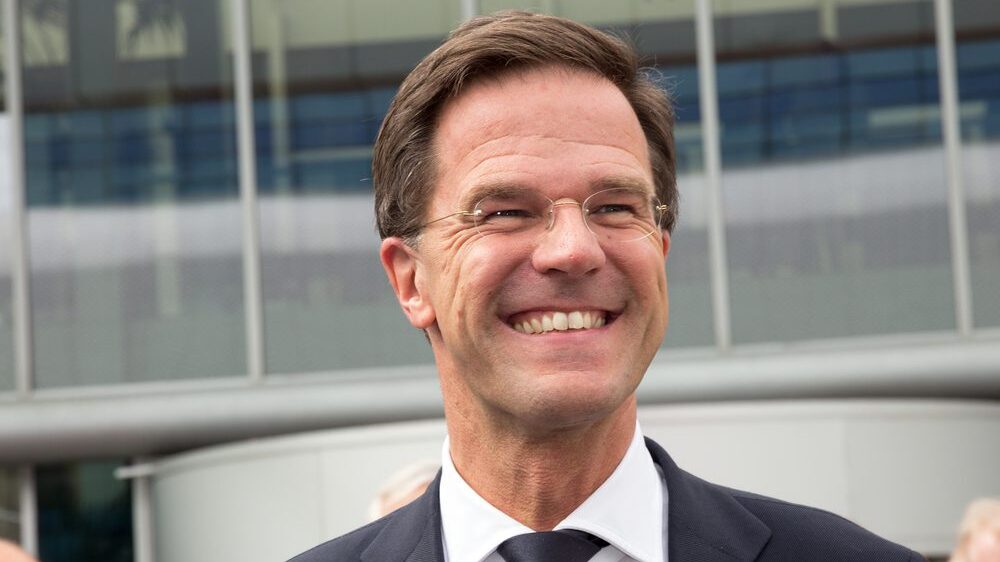
More than 8 in 10 Dutch citizens are of the opinion that their prime minister ought to step down from his position in light of what has been described as a highly incriminating report—put together and released by a parliamentary committee—on natural gas extraction in one of the country’s largest cities, an opinion survey has revealed.
The survey, published in the early morning hours on Wednesday, February 28th, by the Amsterdam-based daily morning newspaper De Telegraaf, indicated that 83% of the Dutch public believes that Mark Rutte, the leader of People’s Party for Freedom and Democracy (Renew), should submit his formal resignation as Prime Minister of the Netherlands.
The in-depth research report, released Friday, February 27th, by the Parliamentary Committee of Inquiry on Natural Gas Extraction in Groningen, concludes that “the interests of the people of Groningen have been systematically ignored in the natural gas extraction” in the city, and it has “had disastrous consequences for them.”
Furthermore, the inquiry—described as the most serious investigative tool available to the House of Representatives, the country’s lower house, in cases where it wishes to carry out its probes—found that the Dutch prime minister for years failed to perceive, take into consideration, and respond appropriately to the situation in Groningen, despite the seriousness of the situation.
Gas extraction from the 900 square kilometer Groningen gas field, which has been in production since 1963, is believed to be the cause of an increased number of earthquakes with increasing magnitude and subsequent damage to buildings, especially after 2001. The gas field has, to date, produced 2,246 billion cubic meters of natural gas and contributed €363 billion in revenue to the Dutch treasury.
Geert Wilders, the leader of the national, right-wing Party for Freedom (ID), which over the past several months has been fluctuating between the second and third most popular party, was one of the several—but perhaps the most prominent—Dutch politicians who called for Rutte to step down. In a tweet, Wilders posted a photo of the De Telegraaf article, cited the 83% figure, and wrote: “Rutte must resign. [His] position is untenable.”
83%: Rutte moet opstappen. Positie onhoudbaar.#StemRutteWeg #stemzeweg #provincialestatenverkiezingen #PS2023 #StemPVV #PVV pic.twitter.com/WhuIZGzClK
— Geert Wilders (@geertwilderspvv) February 28, 2023
“Immediate resignation Rutte and associates! They failed miserably and did not take the Groningen people seriously. They should have repaired the damage much sooner,” one voter said.
Another was quoted by De Telegraaf as having said: “Scandalous how people in Groningen are treated. The resignation of the cabinet would certainly be a good gesture, but Rutte has absolutely no intention of doing so, he will turn his back as always.”
“The Rutte cabinets have caused so much misery! New elections are the only option,” a third voter declared, adding that “confidence in the cabinet and the administrative culture has completely disappeared and this coalition is not going to restore that.”
Netherlands, Peil poll:
— Europe Elects (@EuropeElects) February 26, 2023
Seat projection
VVD-RE: 21 (-2)
BBB-*: 19 (+2)
PVV→ID: 17 (-1)
GL-G/EFA: 13
D66-RE: 13 (+1)
PvdA-S&D: 11
JA21-ECR: 10
PvdD-LEFT: 8
SP→LEFT: 7
…
+/− vs. 16-17 Feb. 2023
Fieldwork: 24-25 Feb. 2023
Sample size: 4,000
➤ https://t.co/dz1X5eQdmV pic.twitter.com/RVtpmJV9UG
Dutch parliamentary elections aren’t set to take place until March 2025. However, it is possible—and perhaps quite probable—that a snap election could occur, especially given the fact that support for the ruling four-party coalition has fallen by over 41% since the 2021 general elections. Per the latest polling data, if elections were held today, the razor-thin majority (78 of 150 seats) secured by the liberal coalition in 2021 not only cease to exist but drop to a meager 46 seats.
